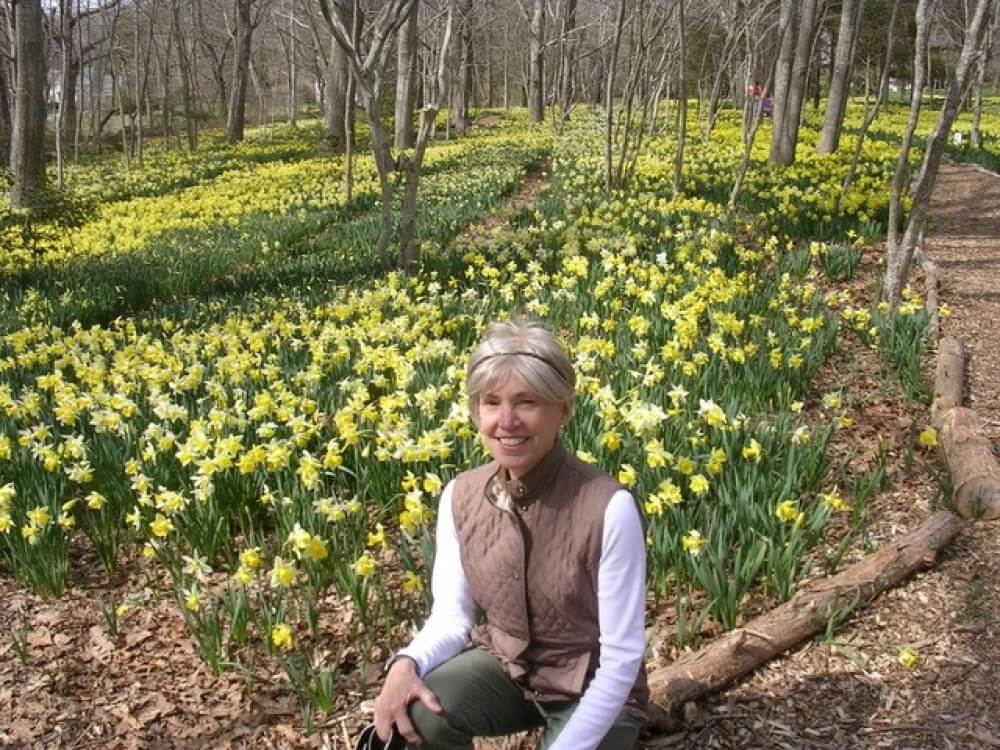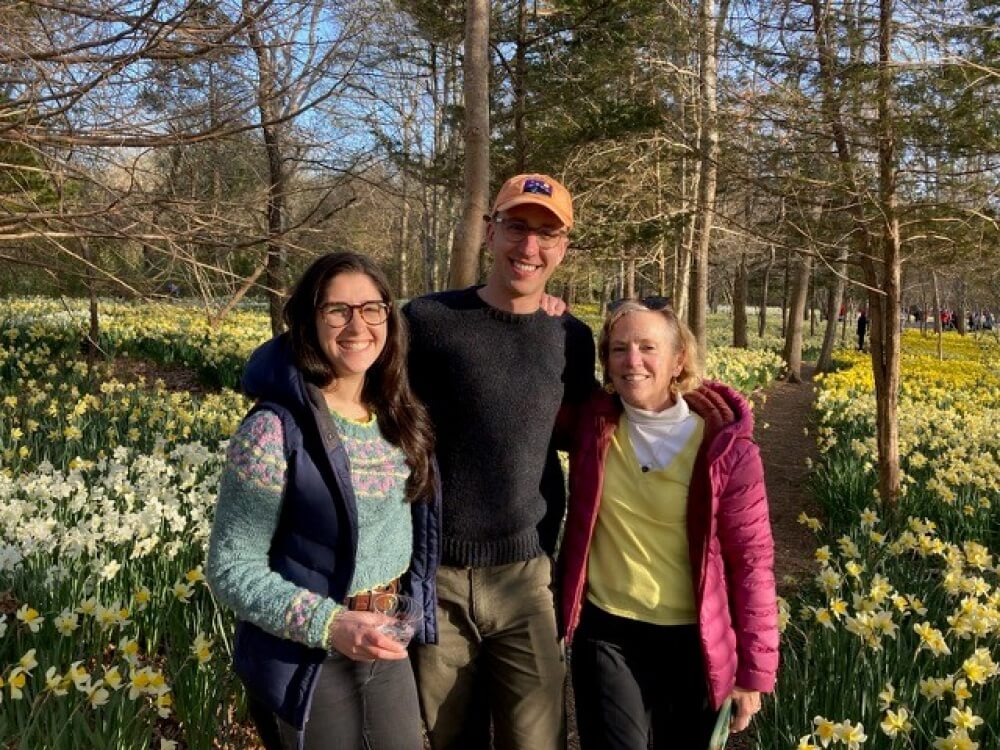Sally Johnston cannot be slowed down. She just recently returned from a month-long trip to South Africa for a safari, and Namibia to visit a longtime friend, and is already planning her next excursion.
The 74-year-old survivor has always been active, and she says it’s time to achieve her goal of visiting all seven continents. It’s a dream inspired by a competitive spirit with her late mother who lived to age 97 and did the very same. The only one left on Johnston’s list is Asia.
Johnston has been able to travel far and wide despite facing a lobular breast cancer diagnosis ten years ago. Back then, her primary care provider found a lump near her clavicle. A biopsy shortly after confirmed that it was breast cancer which had spread to lymph nodes. She knew exactly where she wanted to go: Dana-Farber Brigham Cancer Center.

Leaning in on treatment
It wasn’t Johnston’s first experience with cancer: In the ‘90s she was diagnosed with ductal carcinoma in situ, an early form of breast cancer, and was treated at Dana-Farber. In the twenty years since, her follow-ups had ended, but in 2013 she returned for lobular breast cancer. Despite her previous experience, the diagnosis, which involved the lymphatic system, was frightening.
But her care team, led by Dana-Farber Brigham medical oncologist and director of Estrogen Receptor Positive Translational Discovery Research, Rinath Jeselsohn, MD, had a wealth of expertise in her subtype of cancer, and together they leaned into an aggressive approach.
“A good doctor makes you feel confident about your decisions,” Johnston says. “And Dana-Farber gave me that confidence.”
Her cancer was estrogen-receptor positive, meaning it uses estrogen to grow. Treatment began with a type of drug called an aromatase inhibitor, which subdues the body’s production of estrogen and can help attack the cancer and keep it from coming back. After half a year on this type of hormone treatment, Johnston was also ready for a mastectomy.
Staying moving
Not long after the surgery, Johnston was on her feet. An avid runner and rower, she continued training for a half marathon in New Bedford, Mass.
“I’m sort of incorrigible,” she jokes.
Just three weeks after her mastectomy, with identification information taped to her forearms in case she fell, she ran her best time. The tape didn’t last long through all of the sweating.
In 2014, Johnston began chemotherapy and then radiation to eradicate any possible cancer cells that were not removed by the surgery. Even through those treatments, she was on the move. Temporarily living near Boston College, she walked down to Dana-Farber Brigham and then ran back after her radiation appointments. During chemotherapy, she would go out for long walks and day trips around New England with her husband and son, who were with her through it all.
“She flew through all of her treatments,” Jeselsohn observes. That’s not necessarily the case for every patient with breast cancer including invasive lobular breast cancers. Jeselsohn and the rest of the breast oncology team are working on identifying novel therapeutics that can improve outcomes while reducing complications.
“We’re bettering our understanding of the biology of invasive lobular breast cancer to develop molecular tools. These will help us to identify a patient’s risk better and to optimize treatment by finding novel targets in this breast cancer subtype,” she says.

The road to seven continents
By the end of 2014, Johnston was in remission. But shortly after, she lost her husband to Merkel cell carcinoma, and fears around cancer lingered.
“When you first get diagnosed, it’s all you think about,” she explains. “And it never really goes away.” Yet, she says, “I’m not one to sit at home and feel sorry for myself.”
In the ten years since her treatment, Johnston has been to Antarctica, the Galapagos Islands, Scandinavia, and Machu Pichu, and has driven up the rough road through Canada to Alaska in a Volkswagen Beetle.
“We were terrified of skidding off the road down the bank,” she remembers, chuckling. “You can’t call a tow truck up there.”
Even at home on an 11-acre plot in Dartmouth, Mass. Johnston seeks thrills. Right after chemo, she committed to plunging into the Atlantic at least once a month even through the frigid winter when the water temperature hovers just above freezing. She held that commitment for two years.
These days, her days are filled with landscaping work and volunteering at the Audubon Society, New Bedford Symphony Orchestra, and the Lloyd Center for the Environment. And soon she’ll be a grandmother.
“I’m doing great,” she says. “So far, so good.”
